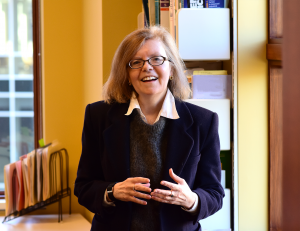 The comparative politics faculty believes that advances in political analysis are best achieved through a simultaneous commitment to rigorous empirical research and extensive theoretical knowledge. All of us have devoted many years to studying politics as it is practiced in specific places in the world, but we also seek to connect this knowledge to the broader social scientific enterprise aimed at advancing our understanding of politics more generally.
The comparative politics faculty believes that advances in political analysis are best achieved through a simultaneous commitment to rigorous empirical research and extensive theoretical knowledge. All of us have devoted many years to studying politics as it is practiced in specific places in the world, but we also seek to connect this knowledge to the broader social scientific enterprise aimed at advancing our understanding of politics more generally.
Some faculty research how political institutions shape party systems, policy, democratic stability, levels of corruption, and other political outcomes; others investigate how social structures and identity combine to shape political behavior, the quality of representation, and democratic accountability. Faculty members also study how politics affects economic development and the structure of welfare states. Finally, many of us examine the politics of authoritarian and democratic regimes — a topic that is explored in its full interdisciplinary breadth by the College’s Democracy Initiative, in which our faculty are heavily invested.
These interests are reflected in our graduate curriculum which, in addition to our Core Course in Comparative Politics, regularly features courses in: 1) Comparative Institutions; 2) Identity in CP; 3) Comparative Political Economy; 4) Democracy and Authoritarianism. We also routinely offer methods courses of particular interest to comparativists, on topics such as: quantitative methods, qualitative methods; game theory; and field research.
Our students routinely interact with prominent CP scholars from around the world in the department’s Lansing-Lee/Bankard Seminar. Students present their research in an on-going, faculty-led seminar – an invaluable opportunity to learn and grow as a scholar – and in professional meetings around the world. Our graduates get jobs in leading universities and colleges, governments, think tanks, and the private sector.
